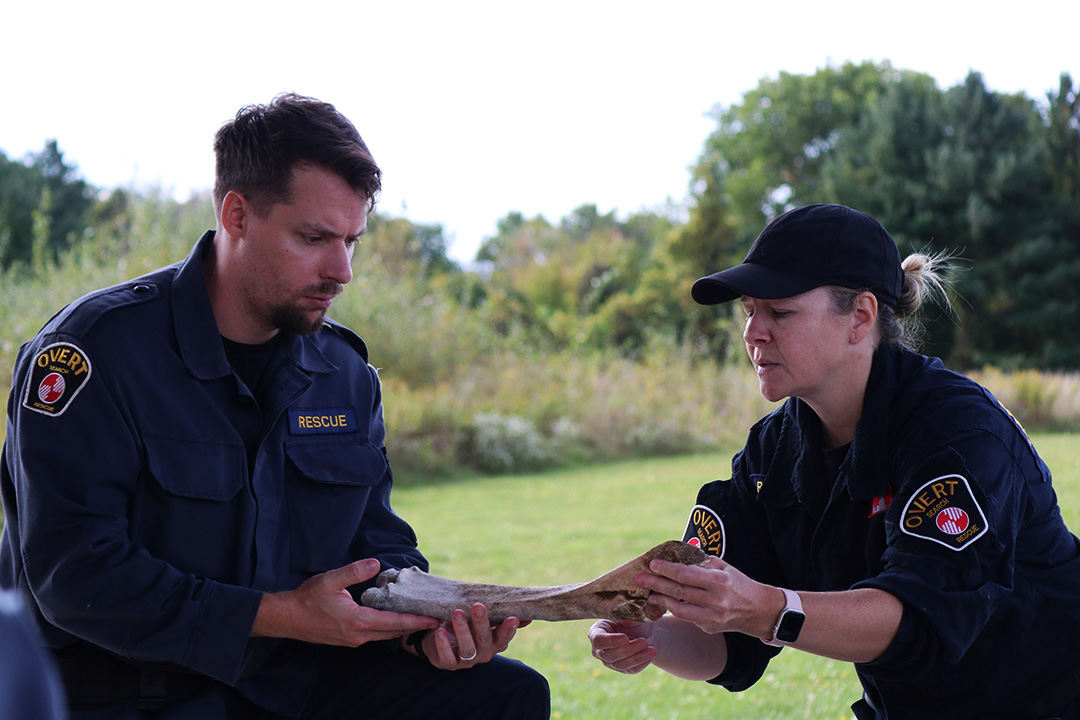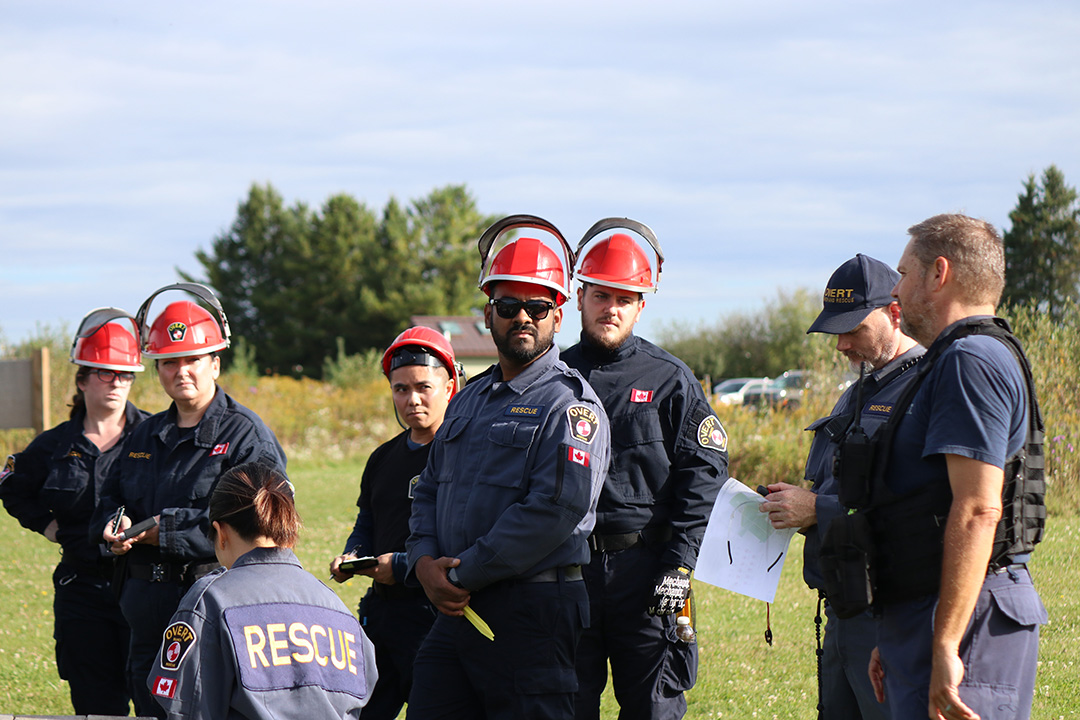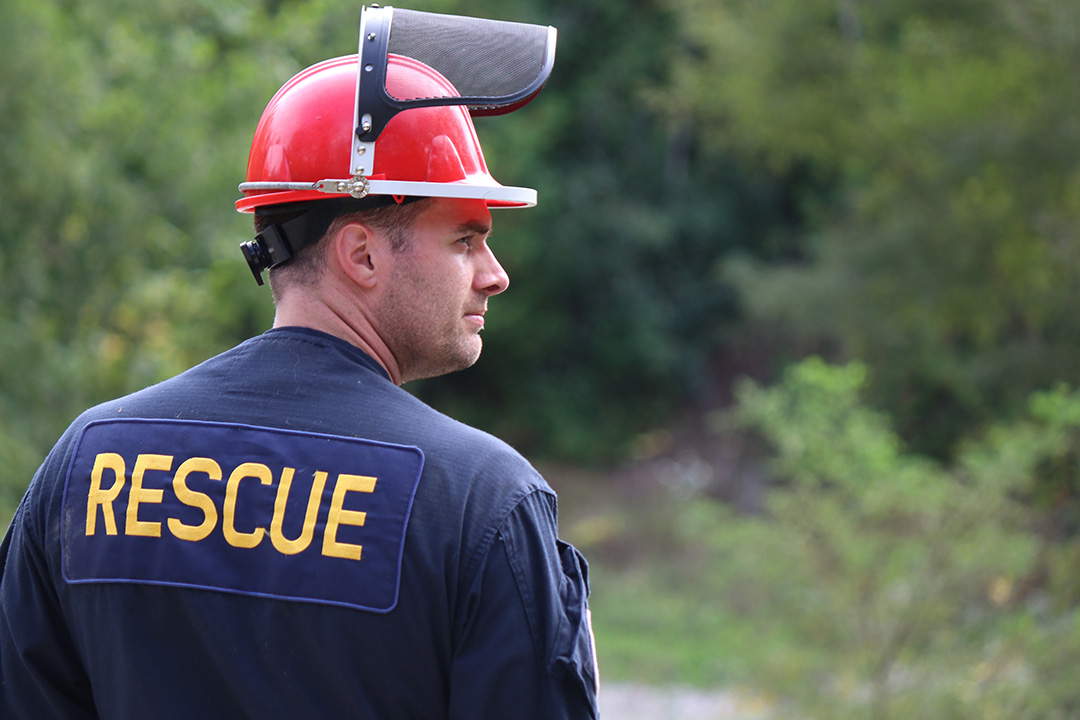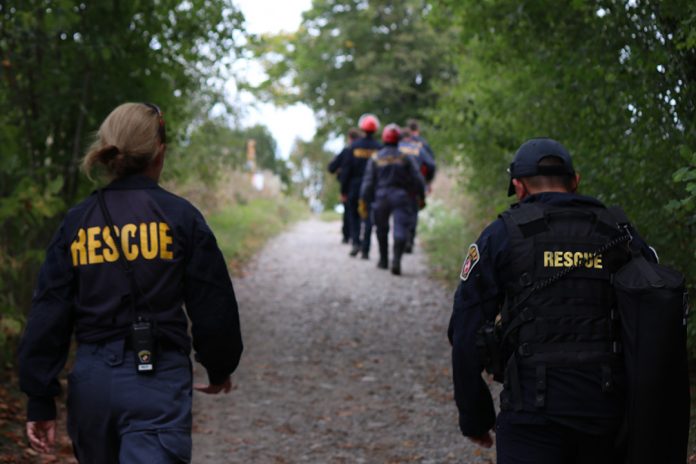The Ontario Volunteer Emergency Response Team (OVERT) is made up of dedicated volunteers who brave harsh weather, rough terrain and long hours to ensure the safety of their community members.
“We cover over 10, 000 square kilometres and a population of about five and a half, six million people,” said Glen Turpin, a retired police officer and a search and rescue volunteer with OVERT for 32 years.
The group gets called out by police to assist with emergency responses across the province and beyond.
“Our team has been everywhere from Cambodia to Haiti,” Turpin explained. “And we’ve been up to one of the reserves up north, Attawapiskat, providing clean water solutions for that community years ago. So we’ve got a wide scope of events that we’ve been involved in.”
OVERT conducts regular training to keep their volunteers’ skills up to standard. Since they are often on the front-lines of emergencies, this level of preparedness is essential. At their most recent training on Sept. 28, the team had four stations set up where they practised a hasty search, navigation, map skills and learned about identifying bones.

Clint Neuls, another long time volunteer, has been with the team for over 30 years. He said that OVERT has helped set the standard for search and rescue training in the area and also follows official provincial guidelines.
Annual training is necessary to refresh members’ skills and train new recruits. Thanks to ongoing recruitment, the team has grown considerably over the years. Neuls said that having a large team is one of OVERT’s strengths, as members come from diverse backgrounds and bring different perspectives to the group.
“We have an ER doctor, we have nurses, we have mechanics and carpenters …They all come with skills that are applicable to search and rescue,” he explained.

The bond between the team is a big factor for a number of volunteers. Kelly Finnamore, who has been with the team for four years, said the team environment is his favourite part of volunteering. Thilak Vigneswaran, a new member who joined 10 months ago, echoed the sentiment. He said the work is rewarding and it’s nice to work with like-minded volunteers who “all have the same mentality of giving back to the community.”
Volunteers can specialize in marine search and rescue, canine and technical rescue. There are also incident command and communication units. Neuls explained that every member starts as a part of the ground search and rescue unit, and can pursue additional training to join a specialized team.

On top of the official training, the work requires significant emotional strength.
Within the region it’s more common for people to go missing than to get lost, according to Neuls. That means a lot of the cases OVERT gets called out to are things like suicide risks or Alzheimer patients.
“We don’t do a lot of ‘lost boy in the woods,’” Neuls explained. “I’ve unfortunately seen more bodies than I care to see. And at the same time we’re doing a service, we’re still reuniting that person with their family.”
For members like Neuls and Turpin, the desire to help people drives them to keep volunteering despite the challenges.
“The reality is when you’re showing up people are at their worst at that time. Their child is missing, their senior parent is missing, or somebody’s despondent, and they need help,” Turpin said. “This group comes together and provides that assistance, and you can see the look on the family’s faces when the team shows up.”
The volunteers, which he describes as “unpaid professionals” due to the rigorous training they undergo, are often a beacon of hope for people in a crisis.
“That’s probably the biggest aspect of it,” Turpin said. “You see immediately the impact you’re having on the family.”




